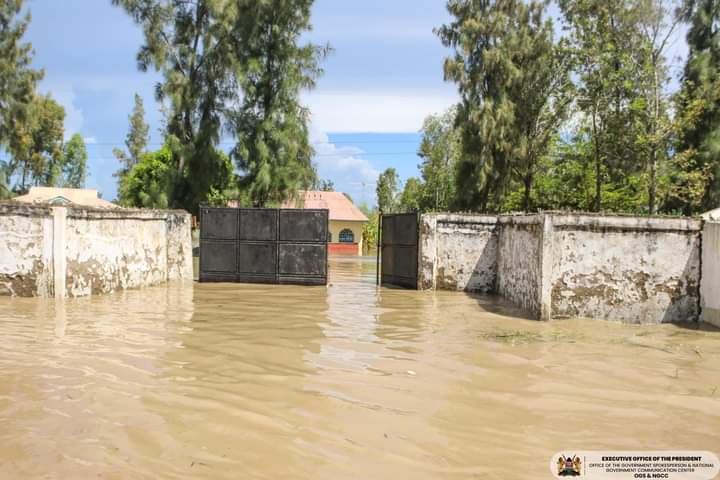Kisumu County is actively working with various stakeholders to enhance its efforts to better manage future flood risks.
The Director of Environment and Climate Change, Martin Oloo says the lakeside county is focused on practical solutions and leveraging potential new technologies to mitigate effects of flooding in the area.
“Sensitization and educating residents on appropriate measures is the major approach we are applying to create public awareness and mitigate flooding,” Oloo emphasized.
The awareness campaigns, he added, aim to keep waterways clear, as clogged waterways often lead to rainwater overflowing the land.
“Human activities block the waterway, hence, water cannot naturally flow downstream causing floods. Change of these behaviors is a significant step in addressing the flood menace,” he said.
Kisumu plans to enhance public awareness, initiate tree planting programs, and ensure developments comply with environmental regulations.
“Collaborative efforts with the National Government, NGOs, academia, and World Bank partners are also in place to help improve flood resilience,” Oloo disclosed.
Additionally, the county government conducts desiltation of the lake and river beds before the rainy seasons to maintain clear water channels.
“The exercise is very costly, thus, inadequate funding is the primary challenge that has significantly impeded our efforts,” Oloo said in an interview with KNA.
Flooding has been an issue in Kisumu County, with the recent incident displacing over 15,000 households, destroying farm crops and social infrastructure.
Asked about the innovative Slamdam technology, that employs synthetic tubes filled with water to serve as barriers against floodwaters as a way of controlling floods, that has been embraced by Laikipia County, Oloo says plans are underway to investigate its potential for Kisumu.
“This technology could aid in water harvesting for irrigation and help mitigate floods without displacing communities. It is an environmentally friendly method to mitigate floods,” Oloo observed.





